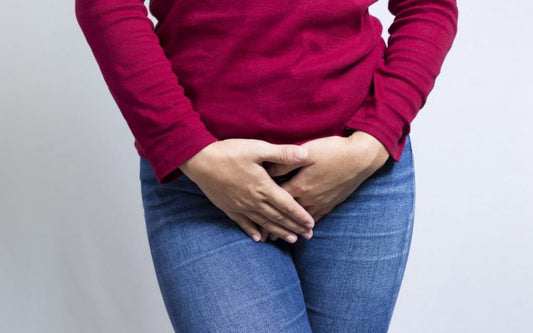
Fecal Incontinence
Don’t let fecal incontinence interrupt your life ever again!
What causes fecal incontinence?
Fecal incontinence affects one in 25 (or four percent of) women who have given birth.
It can have a big impact on your quality of life. Many women find it so embarrassing that they don’t seek medical help; however, there are a range of treatments that can help.
You are most likely to have fecal incontinence if you’ve given birth. This is because pushing in labour can damage the nerves and ring of muscles (called your anal sphincter) that help open and close your bowels.
You are also more likely to have fecal incontinence if you have: constipation frequently and strain to empty your bowels completely a prolapse of your back passage (or rectum) where it ‘drops down’ through your bottom hole (or anus) an inflammatory bowel disease (e.g. ulcerative colitis or Crohn’s disease) a fistula or hemorrhoids a condition that affects your brain’s ability to send messages to your bowel (like Parkinson’s disease, multiple sclerosis or a stroke).
How is fecal incontinence diagnosed?
Your local doctor or GP will most likely: ask you questions about the history of your health examine your body ask you to cough, push down or tighten your pelvic muscles.
They may refer you to a women’s health physiotherapist or a doctor who specializes in women’s incontinence (called a urogynaecologist).
They may send you for: an ultrasound to get a picture of the area around your back passage,and an anal manometry test to check your anal sphincter muscles. This involves putting a small, flexible tube the size of a thermometer into your back passage. This tube has a small balloon at the end which is inflated so you can squeeze it or try to push it out an electromyograph (EMG) to checks the nerves connected to your anal sphincter. This involves putting a small electrode plug in your back passage that you will squeeze or try to push out a test to check your pelvic floor muscles.
How is fecal incontinence treated?
The kind of treatment you have will depend on how long you’ve had fecal incontinence or anal sphincter damage, how severe it is, your age, health, and medical history.
Your doctor may recommend one or more of these treatment options:
Lifestyle changes such as including more fiber in your diet.
Medication to slow down your large bowel and increase water absorption.
Regular enemas to keep your back passage relatively empty. This involves putting a tube into your back passage that pushes liquid up into your bowel causing it to empty.
Physiotherapy to strengthen the pelvic floor which supports your bowel. A physiotherapist can design a special pelvic exercise program for you.
Surgery to improve or repair damaged anal sphincter muscles or nerves.
-
 Essential for All
Essential for AllDual-Mag Complex
Regular price $18.00 USDRegular priceUnit price / per
Testimonials

"He is continually researching, learning, and developing his skill and knowledge for the benefit of his patients." - Kimberly H.
This is a body text example

“They are all so caring and helpful. He’s so personable and we’re so glad to be able to turn to him.” - Gayle S.
This is a body text example

"Hands down he’s the best Doctor! Such a God fearing and understanding man thats very compassionate about his job." - L.F.
This is a body text example

"I have had several HOCATT appointments and it has been Awesome!! I have really noticed the difference in my overall health." - A.M.
This is a body text example
Our Blog
-

Why Kegal Exercises Can’t Fix Incontinence Problem
If you’ve been having problems like urine incontinence, fecal incontinence, and laxity in your vaginal tissues, your doctor might suggest trying Kegel exercises. These exercises strengthen the pelvic floor muscles...
Why Kegal Exercises Can’t Fix Incontinence Problem
If you’ve been having problems like urine incontinence, fecal incontinence, and laxity in your vaginal tissues, your doctor might suggest trying Kegel exercises. These exercises strengthen the pelvic floor muscles...
-

The Truth About Incontinence After Menopause
“It’s an age thing!”If you’ve passed the age of 50 years, you’ll probably wonder if the early signs of incontinence are the onset of menopause. While this fact is true...
The Truth About Incontinence After Menopause
“It’s an age thing!”If you’ve passed the age of 50 years, you’ll probably wonder if the early signs of incontinence are the onset of menopause. While this fact is true...
-

Why Nobody Talks About Painful Intercourse
Painful intercourse or dyspareunia as it is also called is more common than most women realize it. Several factors can cause the condition, some of which are physical and other...
Why Nobody Talks About Painful Intercourse
Painful intercourse or dyspareunia as it is also called is more common than most women realize it. Several factors can cause the condition, some of which are physical and other...







